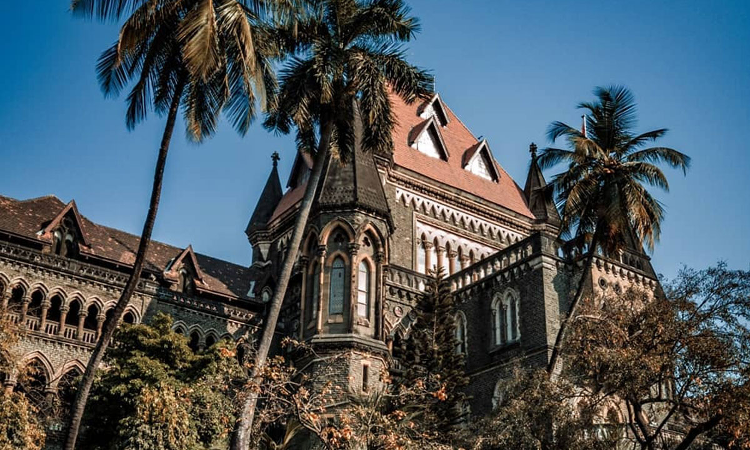
Introduction
In urban high-rise communities, disputes between the housing society members and the administration are not unusual. The current case started when Smita P. Dalvi, the petitioner, filed a writ suit in the Bombay High Court, contesting an Assistant Registrar ruling that was made in accordance with Section 154B-29 of the Maharashtra Co-operative Societies Act, 1960. Dalvi alleged that since Anita Madan, another member, had given her permission to use the parking area allotted reserved for Madan, the dues were unfairly charged. In spite of this agreement, Dalvi and Madan were assessed fines and penalties by the housing society. The article critically examines the case’s facts, the parties’ legal stances, the court’s ultimate decision, and its function.
Arguments from the Petitioner (Smita P. Dalvi)
Lack of Jurisdiction: The petitioner argued that the Assistant Registrar lacked jurisdiction to issue the Recovery Certificate under Section 154B-29 of the Maharashtra Co-operative Societies Act, 1960 (MCS Act). Dalvi claimed that the alleged default pertained specifically to parking charges, which should be addressed under Section 91 of the MCS Act as a member dispute.
Reliance on Bye-Law No. 174(B)(iv): The petitioner claimed that parking-related conflicts should be settled in a cooperative court under Section 91 and presented Bye-Law No. 174(B)(iv) of the Model Bye-Laws for Co-operative Housing Societies. She stated that these ordinances clearly delineate the right approach for settling such disagreements.
Permission from Another Member: Dalvi pointed out that another member, Ms Anita Madan, who was residing outside India, had permitted her to occupy the parking space allotted to her. Therefore, she argued that any penalty charges imposed on her were unjust since they were levied concerning a space she was authorized to use.
Request for Quashing the Order: Based on these arguments, Dalvi requested that the court quash and set aside the impugned Recovery Certificate, asserting that it was issued without considering these critical aspects.
Arguments from the Respondents
Maintainability of Writ Petition: The respondents objected in the first instance to the writ petition’s maintainability, claiming that Section 154 of the MCS Act provides an alternative remedy that permits a revision of such orders.
Assistant Registrar’s jurisdiction: The respondents further contended that, in spite of the petitioner’s claims, the Assistant Registrar is empowered to issue Recovery Certificates under Section 154B-29 of the MCS Act, which includes specific guidelines for recovering debts owed to housing societies in the form of arrears of land revenue.
Respect for Previous Rulings: The respondents stressed that the petitioner had already demonstrated her financial commitment by adhering to a previous decision that mandated that she deposit 50% of the sum mentioned in the Recovery Certificate.
Support for the Impugned Order: The respondents’ counsel further contended that the Assistant Registrar’s impugned order was carried out in accordance with the law as it was legitimate and lawful.
Court’s Findings
Overriding Effect: The Bombay High Court’s interpretation of the “notwithstanding” clause in Section 154B-29 is pivotal to understanding its ruling. The court emphasised that Section 154B-29 operates “notwithstanding anything contained in sections 91, 93 and 98.” This means that recovery proceedings initiated under this section take precedence over any conflicting provisions in these sections. The court highlighted that this clause is designed to give certain provisions an overriding effect over others when conflicts arise. For this, the Hon’ble Court referred to the judgement of Iridium India Telecom Ltd. v. Motorola Inc (2005) 2 SCC 145. In this case, the Supreme Court discussed the effect of non-obstante clauses and noted that such clauses are intended to give specific provisions an overriding effect over conflicting provisions in existing laws or contracts. The court emphasized that a clause beginning with “notwithstanding anything contained in” is meant to ensure that certain provisions can operate fully despite any conflicting rules.
Finality of Recovery Certificates: The judgment reinforced that certificates issued under Section 154B-29 are conclusive proof of arrears and enforceable as land revenue dues. This finality prevents challenges to these certificates in courts, streamlining recovery processes for housing societies.
Separation of Jurisdictions: The court clarified that Bye-Law No. 174 and Section 154B-29 operate in different spheres; thus, both can coexist without conflict. While Bye-Law No. 174(B)(iv) mandates that disputes related to parking be resolved through Co-operative Courts under Section 91, Section 154B-29 provides a mechanism for recovering dues directly through registrars.
Quashing of the order: Despite negating the petitioner’s argument, the Bombay High Court quashed and set aside the impugned order since some of the contentions raised had not been taken into consideration by the Assistant Registrar.
Implications of the Judgment
This ruling has important ramifications for members of cooperative housing societies:
- Strengthening Co-operative Governance: This decision provides strong methods for financial recovery, strengthening the governance structures within co-operative housing societies and reaffirming the validity of Recovery Certificates issued under Section 154B-29 of the MCS Act.
- Encouragement for Compliance: This ruling serves as a deterrent against non-compliance among society members regarding payment obligations. Knowing that housing societies have clear legal avenues for pursuing unpaid dues may encourage members to fulfill their financial responsibilities proactively.
- Legal Clarity: The judgment provides clarity on how various sections of legislation interact—an essential consideration for lawmakers seeking to amend or refine existing statutes governing cooperative governance structures.
- Precedent Setting: This ruling sets a precedent for future cases involving disputes over dues within co-operative societies, offering guidance on how similar disputes should be handled and interpreted under the MCS Act.
Conclusion
The Bombay High Court’s judgment in Smita P. Dalvi vs. The Deputy Registrar is significant not only for resolving a specific dispute but also for establishing critical legal principles governing recovery processes within co-operative housing societies in Maharashtra. By clarifying jurisdictional authority and emphasizing efficient recovery mechanisms through its interpretation of the “notwithstanding” clause in Section 154B-29, this ruling enhances operational integrity while providing a clear framework for addressing similar disputes in the future.
This case underscores how judicial interpretations can shape cooperative governance structures and influence member behavior within these communities, ultimately contributing to their sustainability and effectiveness as self-regulating entities focused on mutual benefit and collective welfare.
As cooperative housing societies continue to play an essential role in urban living arrangements across India, decisions like these will shape their operational frameworks and ensure they remain viable entities serving their members effectively. The interpretation of non-obstante clauses further solidifies legal frameworks by ensuring specific provisions can be enforced without conflict with other statutes or regulations, thereby promoting clarity and efficiency within cooperative governance systems.


This article has been authored by Tanjul Sharma, Associate at Dhruve Liladhar & Co., Advocates, Solicitors & Notary.
